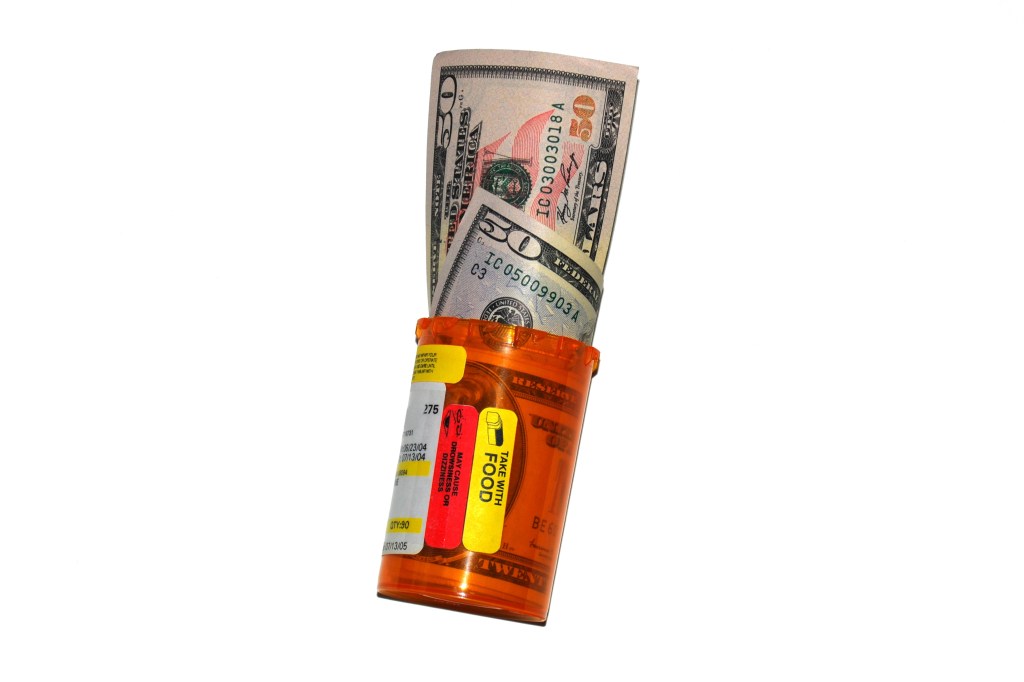Massachusetts lawmakers want drug-makers to reveal costs
Published 7:30 am Tuesday, April 12, 2016

- Massachusetts lawmakers want drug-makers to reveal costs
BOSTON — As prescription costs keep climbing, lawmakers in Massachusetts want drug-makers to justify the prices they charge for life-saving medicines.
Lawmakers backing a proposal to require drug companies to reveal their production costs say the goal is to force the industry to provide some transparency on pricing.
“Prescription drug prices are spiraling out of control, and it’s stressing the whole system,” said Rep. Lori Ehrlich, D-Marblehead, a co-sponsor of the bill and member of Legislature’s Committee on Healthcare Financing, which held a hearing on the proposal Monday.
Lynn Quincy, lobbyist for the nonprofit Consumers Union, said patients face “outrageous” spikes in prescription costs, while the actual costs of making drugs are “shrouded in secrecy.”
“One of the reasons these prices are so high is the opaque nature of our supply chain,” she said. “It’s nearly impossible for policymakers, regulators and consumers to know things such as how high are drug mark-ups, the costs to manufacture and net spending on research and development.”
The proposal would require the makers of drugs prescribed in the state to disclose costs for clinical trials, ingredients, research and development, production and marketing.
Data would be submitted to the state Health Policy Commission, which would compile an annual report to the Legislature with recommendations on ways to lower prices. Most of the information submitted by drug-makers would not be released to the public.
Pharmaceutical and bio-tech firms, not surprisingly, are lobbying against the proposal. They say it will stifle innovation and curtail the development of new medicines, while ultimately driving companies out of the state.
“This could lead to higher prices,” Leslie Wood, a lobbyist for the trade group Pharmaceutical Research and Manufacturers of America, told the panel Monday. “And there is no clear indication of how collecting this information will help actually help patients.”
Wood said requiring drug makers to disclose their costs also creates “significant anti-trust issues.”
The legislation is the latest effort to reel in health care costs as state and federal laws expand access to medical services and expensive drugs hit the market, driving up costs for the government and consumers.
MassHealth — the state’s Medicaid program for low-income residents — increased spending by 19 percent to $15.3 billion in 2014, according to the state Center for Health Information and Analysis. It attributed the rise partially to rising drug prices.
MassHealth provides insurance to 1.8 million low-income residents.
Nationwide, spending by Medicare on drugs rose by 10.9 percent in 2015, driven by a 27.9 percent increase in spending on specialty drugs, according to Express Scripts, which negotiates contracts for drug coverage.
Elisa Choi, a doctor with the American College of Physicians, said she sees first-hand how rising prescription prices hurt seniors and low-income families who struggle to afford medication.
“We’re equally concerned about the rising prices for generic drugs as well as brand name drugs,” she said. “People are having a difficult time paying for medicine, so it’s really become an access-to-care issue.”
Drug costs have grabbed headlines this election cycle with Democratic presidential candidates Hillary Clinton and Bernie Sanders, and Republican challenger Donald Trump, calling for Medicare to use its bargaining power to lower prices and ease restrictions on imports of cheaper drugs from overseas.
Pharmaceutical executive Martin Shkreli became a poster child for high prescription prices last September, when he ramped up the price of a lifesaving AIDS and cancer drug from $13.50 to about $750 per pill.
Transparency proposals are being weighed by several states, including Pennsylvania and North Carolina.
In California, voters could decide in November on a measure to cap what the state pays for drugs, and lawmakers there have proposed price transparency rules for drug-makers and health insurers.
Massachusetts lawmakers said more transparency will mean more competition and lower prices.
“We’re not trying to regulate prices,” said state Sen. Mark Montigny, D-New Bedford. “As the purchaser of life-saving medicines for the state, we have a responsibility, and a right, to know what goes into drug pricing.”
Christian M. Wade covers the Massachusetts Statehouse for CNHI’s newspapers and websites. Reach him at cwade@cnhi.com.





